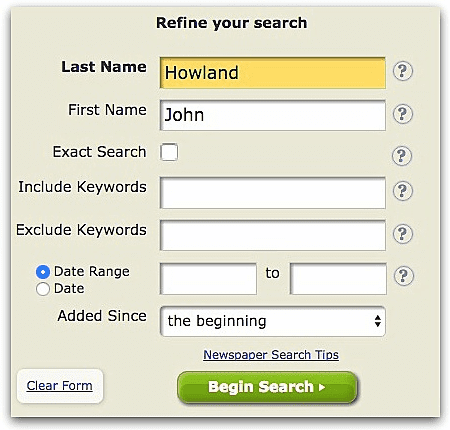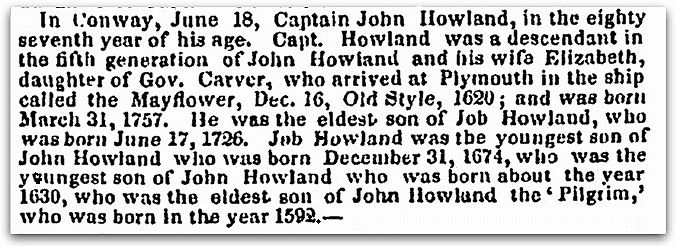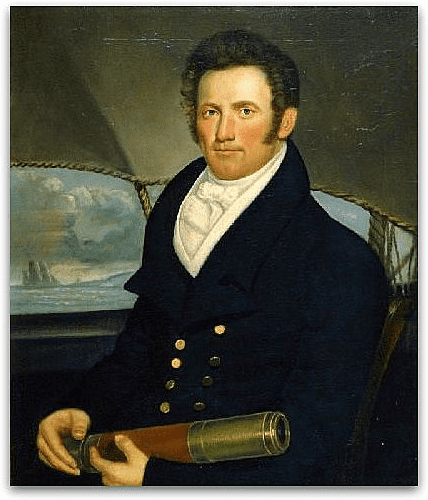Obituaries may be morbid, but they can be a great way to learn more about our ancestors. Oftentimes, you’ll find fascinating details about your relatives like interesting hobbies, causes of death – or in the case of a GenealogyBank obituary I recently came across, a detailed family history.
I was researching my 11th great grandfather, Pilgrim John Howland (1592-1672), who immigrated to America aboard the Mayflower. Though John died in 1672 and GenealogyBank’s Historical Newspaper Archives only go back as far as 1690, I knew newspaper records were likely the best source for finding additional information about what happened to John’s descendants after he arrived in America.
I began by searching the Massachusetts Newspaper Archives for “John Howland.”

This result, an obituary from the National Aegis, was a good example of how useful obituaries can be. This detailed death notice for a Captain John Howland (1757-1843) has the added bonus of tracing his genealogy back five generations to my 11th great grandfather, Mayflower Pilgrim John Howland.

With the information from this obituary, I was able to trace how I’m related to another John Howland (1802-1846) in my family tree (pictured below), but I also now have the birth dates and names of his father and grandfathers going five generations back.

Genealogy Tip: Beyond just confirming birth and death dates, obituaries can be useful for finding other information about your family history, including a multi-generational family tree with the names of parents and grandparents, as well as other relatives.
Related Articles:
